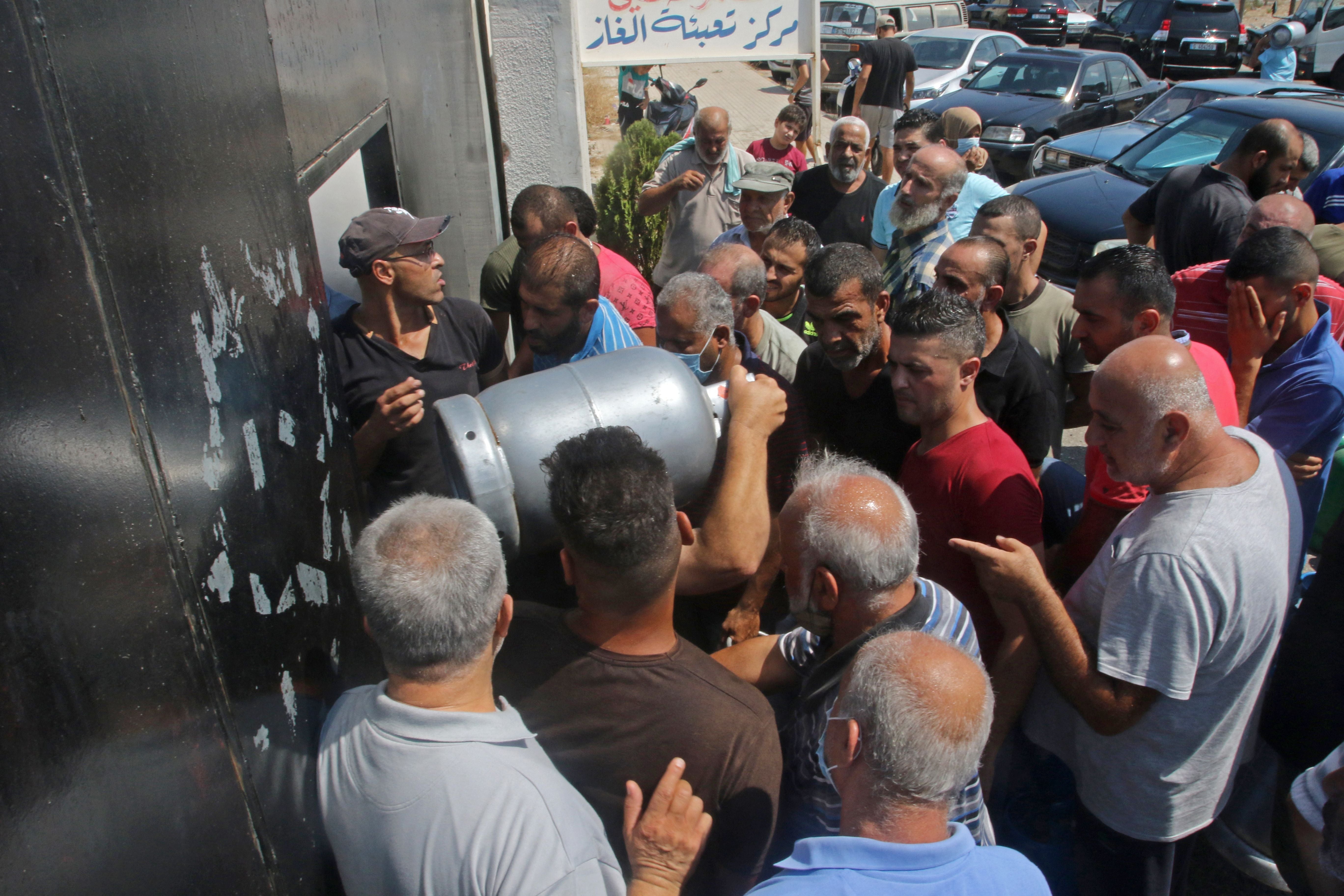Lebanon’s PM calls emergency cabinet meeting as fuel subsidies lifted
Experts warn that prices could quadruple, likely triggering hyperinflation at a time when much of the population is living beneath the poverty line

Lebanon’s cash-strapped central bank has effectively ended fuel subsidies, in a move experts warn could trigger hyperinflation.
The action has been slammed by the country’s caretaker prime minister as “illegal”.
Hassan Diab, whose government has rarely met since its resignation a year ago, called an emergency cabinet meeting on Thursday to discuss the controversial decision which comes as the country is in the grips of one of the world’s worst economic collapses in 150 years.
Several political groups including the parliamentary bloc of Lebanese militant group Hezbollah condemned the action and blamed central bank governor Riad Salameh.
After the meeting, legislators called for the rollout of a prepaid cash card for the poor before any other step is taken to end or reduce subsidies on any essential goods.
Experts warn that prices could quadruple, likely triggering hyperinflation at a time when swathes of the population are living below the abject poverty line.
But sources within the central bank told The Independent they had “no choice” as the bank’s usable reserves had all but dried up.
“We have $15.7bn (£11.4bn) left of reserves and we can’t legally go under $15bn (£10.9bn),” the source claimed. The central bank’s reserves were $40bn (£29bn) in 2016. The fuel subsidy costs some $3bn (£2.8bn) a year.
Today, the central bank’s governor took this decision unilaterally, and the country cannot bear the serious repercussions of such a decision
Mr Diab said his cabinet had been “insisting” on a policy to ration subsidies instead of lifting them completely as Lebanon “was going through a dark tunnel”.
“Today, the central bank’s governor took this decision unilaterally, and the country cannot bear the serious repercussions of such a decision,” he said, adding that the fallout of the decision will affect livelihoods, the economy and state institutions that will be “overwhelmed with this new reality”.
His office blamed the “corrupt practices” of traders “that have stolen the Lebanese people’s livelihoods, monopolised foodstuffs, medicines, gasoline and diesel, and turned the country into a black market for trade and speculation”.
Since the onset of the crisis, Lebanon’s central bank has been using its dollar reserves to finance fuel imports at official exchange rates that are well below the price dollars have been changing hands on the parallel market.
Initially, the government raised fuel prices in June after the central bank began extending credit lines for fuel at a rate of 3,900 Lebanese pounds per dollar, more than the official rate of 1,500 pounds.
But the central bank argues this has become unsustainable as the parallel market rate on Thursday soared above 20,000 pounds to the dollar.
And so it stood by its decision on Thursday, saying that subsidies over the past weeks have only helped businessmen, not people, in need. Despite subsidies worth $800m (£580m) in July alone, fuel products remained scarce in the market, it added.
They blame shortages on smuggling, hoarding and the cash-strapped government’s inability to secure deliveries of imported fuel. However, a source within the central bank reiterated there was no other way to deal with this.
“The bank was subsidising diesel and fuel needed for electricity at the 3,900 lira to the dollar rate when in reality the dollar is worth 20,000 lira,” the source said.
“It was the cheapest fuel in the world which is not normal for this situation.”
“The bank will only sell the dollar at real market price, to stop the smugglers as they will stop making a cut,” the source added.
When asked for a response to accusations from Mr Diab that the move was illegal, the source said: “It is illegal to touch the reserves under $15 billion… essential subsidies like those on wheat and specific medicines will remain.”
It is not clear what the new fuel prices will eventually be. The oil directorate said on Thursday speculation that prices will soar are incorrect and that fuel prices issued before the subsidies were lifted still apply and are binding on companies and gas stations.
When you support the commodity you support the trader, which means the smuggler in this case
But prices were already rising across some gas stations, where there were huge queues, and experts warned prices would have to quadruple.
“Prices will go up three or four times,” Sami Nader, a Lebanese economist and Director of Levant Institute for Strategic Affairs told The Independent.
“This will trigger hyperinflation because it will increase the cost of production of anything, from transport to the cost of production, from the cost of electricity to the cost of storage,” he added.
He said the government should have cut subsidies earlier and followed a World Bank programme of giving direct cash to people.
“We should have a real subsidy programme. The people, not the commodity, should be subsidised. When you support the commodity you support the trader, which means the smuggler in this case.”
Agencies contributed to this report
Subscribe to Independent Premium to bookmark this article
Want to bookmark your favourite articles and stories to read or reference later? Start your Independent Premium subscription today.

Join our commenting forum
Join thought-provoking conversations, follow other Independent readers and see their replies